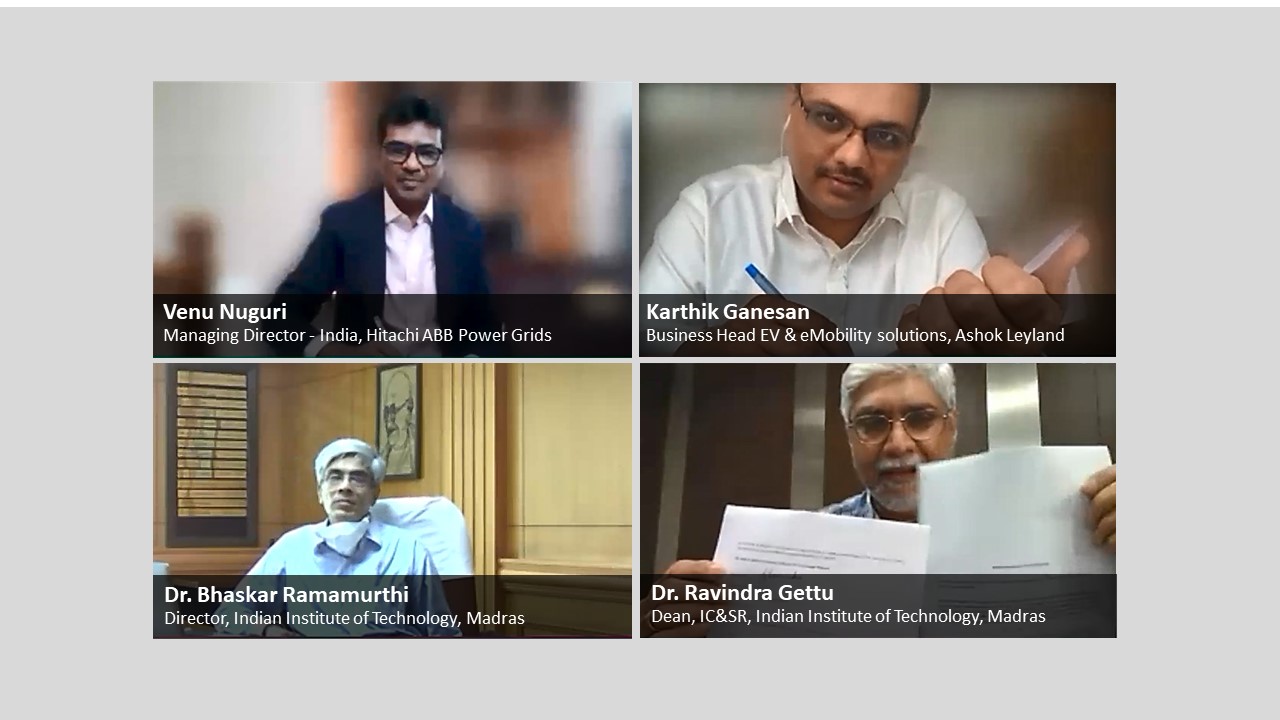Chennai, NFAPost: Hitachi ABB Power Grids in India has announced the signing of a Memorandum of Understanding with Ashok Leyland and the Indian Institute of Technology Madras (IITM) for an e-mobility pilot.
The triumvirate will run an electric bus (e-bus) pilot to support sustainable in-campus commuting by IITM’s students and staff. The e-bus, which will incorporate Hitachi ABB Power Grids’ innovative flash-charging technology – Grid-eMotion Flash, will be provided by Ashok Leyland. IITM will host the infrastructure required to operate the flash-charging system for the e-bus.
“We need to have all hands on deck – industry, academia and policymakers to develop a strong and reliable local ecosystem to support the Indian electric vehicle (EV) revolution,” said Hitachi ABB Power Grids in India MD N Venu
N Venu added, “With sound policy levers in place, this partnership – engaging some of the finest industry and academic minds in India – creates a truly sustainable framework for e-mobility. We are delighted to be partnering with Ashok Leyland and IITM to provide a zero-emissions mass public transportation bus system through our award-winning technology, localised for the Indian market.”
“As pioneers in the bus segment, we are proud to partner on yet another innovative solution in the e-bus segment. Combination of our robust buses with electric propulsion technology and flash charging from Hitachi ABB Power Grids, can be the answer to the need for sustainable public transportation across the country,” said Ashok Leyland CTO N Saravanan.
“This latest alliance will further help us stay at the forefront of embedding innovative and indigenous technologies to nurture the smart e-mobility ecosystem in India,” he added.
“The development of India’s e-mobility charging infrastructure and increased deployment of e-buses is key to meeting the demand for sustainable transport solutions across India’s rural and urban areas,” said IIT Madras Director Prof. Bhaskar Ramamurthi.
Smart e-mobility is at a nascent stage in India. While the government is striving to scale up EV adoption to 30% by 2030, the mass public transport segment is largely untouched. For bus operators, the switch to electric has previously presented challenges. That is because with battery-operated buses it is difficult to maximise passenger load carrying capacity and running time while making the whole operation economically viable. An e-bus with flash-charging technology can solve that problem while improving the quality of life through reducing pollution in densely populated urban areas.





